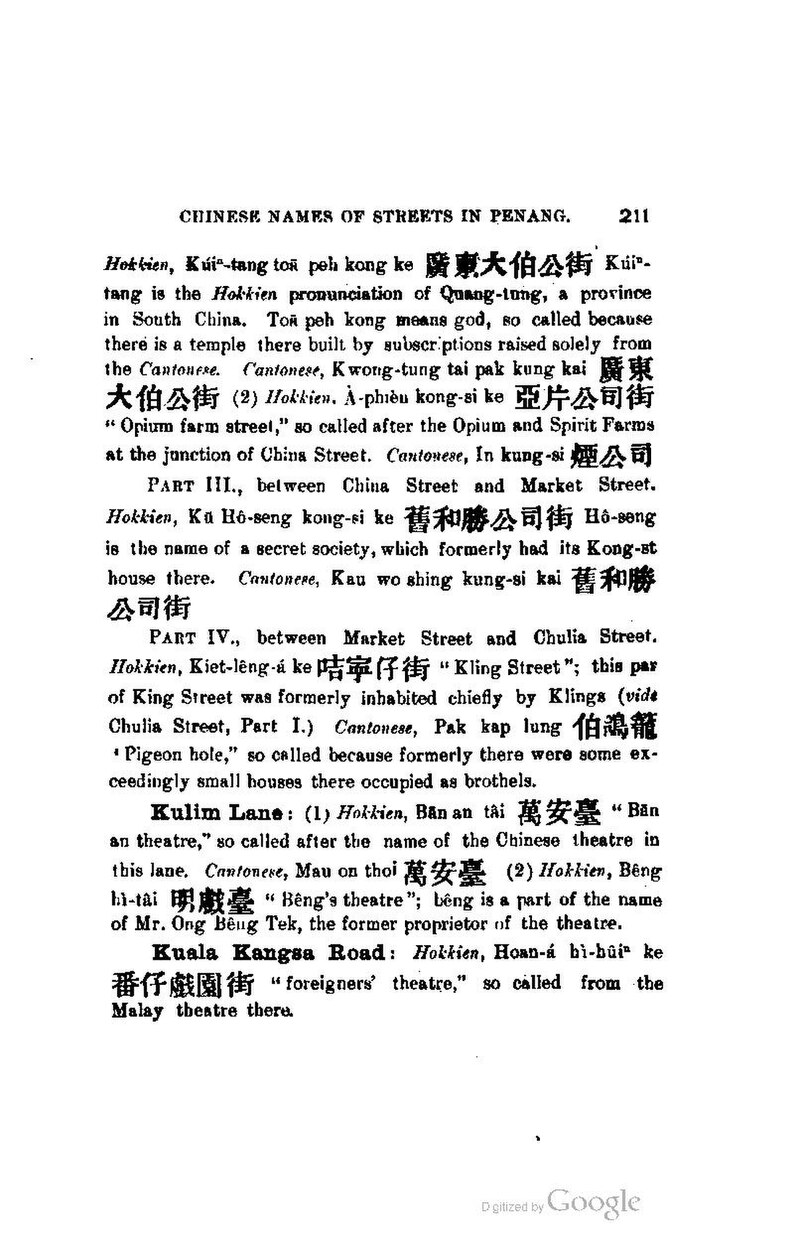This page needs to be proofread.
- Hokkien, Kúiⁿ-tang toā peh kong ke 廣東大伯公街 Kúiⁿ-tang tang is the Hokkien pronunciation of Quang-tung, a province in South China. Toā peh kong means god, so called because there is a temple there built by subscriptions raised solely from the Cantonese.
- Cantonese, Kwong-tung tai pak kung kai 廣東大伯公街
-
- Hokkien. A-phièu kong-si ke 亞片公司街 "Opium farm street," so called after the Opium and Spirit Farms at the junction of China Street.
- Cantonese, In kung-si 煙公司
- Part III., between China Street and Market Street.
- Hokkien, Kū Hô-seng kong-si ke 舊和勝公司街 Hô-seng is the name of a secret society, which formerly had its Kong-si house there.
- Cantonese, Kau wo shing kung-si kai 舊和勝公司街
- Part IV., between Market Street and Chulia Street.
- Hokkien, Kiet-lêng-á ke 咭寧仔街 "Kling Street"; this par of King Street was formerly inhabited chiefly by Klings (vide Chulia Street, Part I.)
- Cantonese, Pak kap lung 伯鴿籠 "Pigeon hole," so called because formerly there were some exceedingly small houses there occupied as brothels.
- Kulim Lane:
-
- Hokkien, Bān an tâi 萬安臺 "Bān an theatre," so called after the name of the Chinese theatre in this lane.
- Cantonese, Mau on thoi 萬安臺
-
- Hokkien, Bêng hì-tâi 明戲臺 "Bêng's theatre "; bêng is a part of the name of Mr. Ong Bêng Tek, the former proprietor of the theatre.
- Kuala Kangsa Road:
-
- Hokkien, Hoan-á hì-hûiⁿ ke 番仔戲園街 "foreigners' theatre," so called from the Malay theatre there.
